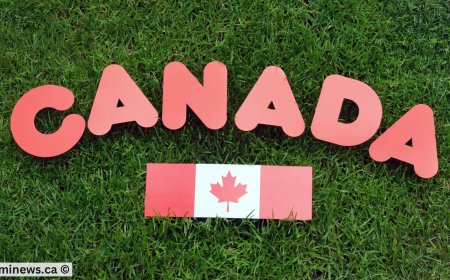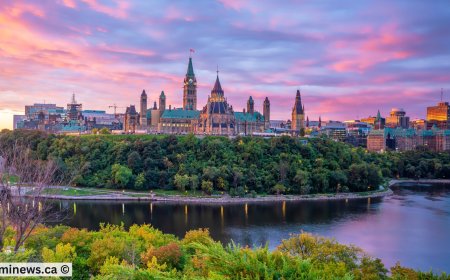How to Work in Canada After Graduation | PGWP Application Process
For many international students, completing their studies in Canada marks the beginning of a new chapter, one that includes the possibility of staying and working in this diverse and welcoming country. This transition is facilitated by the Post-Graduation Work Permit (PGWP), an essential document that allows recent graduates to gain valuable work experience.
However, obtaining a PGWP isn't automatic upon graduation from a Designated Learning Institution (DLI). To determine eligibility, it's crucial to consult the DLI list to ensure your institution offers programs that qualify for a PGWP.
The duration of a PGWP:
Graduates from master’s degree programs of less than two years may be eligible for a three-year PGWP. The length of your PGWP is determined by, the level and duration of your study program and the expiry date of your passport, whichever comes first.
For master’s degree programs:
The programs less than eight months are not eligible for a PGWP. Programs at least eight months can apply for a three-year PGWP, even if the length of the master’s degree is less than two years, provided all other eligibility criteria are met. This exception does not apply to certificate or diploma programs.
For other programs:
The eligibility for a Post-Graduation Work Permit (PGWP) varies depending on the duration of the study program. Programs lasting less than eight months are not eligible for a PGWP.
However, if the program is at least eight months but less than two years, you may receive a PGWP for a duration equivalent to the length of the study program. On the other hand, programs lasting two years or more may qualify for a three-year PGWP.
If you've completed more than one program, a PGWP can combine the lengths of each program, provided each program is PGWP eligible and at least eight months long.
Understanding these nuances is key to unlocking the opportunities available for working in Canada after graduation. By staying informed and meeting the eligibility criteria, you can set yourself up for success in your post-graduation endeavors.
If you’re already in Canada, you can apply for a PGWP as long as you’re eligible. You have up to 180 days after graduation to apply. When applying, you must confirm details about your program, including its name and length, and that you attended and completed it. This can be done by submitting your degree or diploma, transcript, or an official letter from your school.
To be eligible, your study permit must have been valid at some point during these 180 days. However, if your study permit is set to expire before you receive your marks, you have two options: either apply for a visitor record to extend your stay in Canada or leave Canada and apply for your PGWP from outside. If you let your permit expire while in Canada, you’ll need to apply to restore your status as a student, which comes with additional fees.
General eligibility requirements for PGWP include completing a study program at a designated learning institution (DLI), maintaining full-time student status during each semester, and having a valid study permit within the last 180 days. Additionally, if you’ve applied to extend your study permit before it expired and no decision has been made, you can still apply for a PGWP.
If you completed your studies online from outside Canada between March 2020 and August 31, 2022, you didn’t need a valid study permit during that time due to a temporary COVID-19 policy. You have up to 180 days after graduation to apply for a PGWP, and the application process is similar to that for inside graduates.
Just like inside graduates, you must confirm program details and meet the general eligibility requirements for a PGWP. Additionally, if your passport is set to expire before your PGWP, you’ll receive a permit that’s valid until your passport expires. If needed, you’ll be instructed to extend it to get the full validity of your PGWP.
Whether you’re inside or outside Canada, understanding the process for applying for a PGWP is crucial. By knowing the requirements and deadlines, you can ensure a smooth transition from student to worker in Canada.
There are Special Cases and eligibility for Post-Graduation Work Permits. If you fall into any of the following categories, you may be eligible for a Post-Graduation Work Permit (PGWP):
- Accelerated Programs
- Distance Learning
- Taking Leave from Your Studies
- Transfers Between Schools
- Canadian Study Programs with an Overseas Component
- Flight School Graduates
- Graduates of Certain Quebec Schools
- Graduates of Master’s Degree Programs
If you're interested in learning more about any of these programs, feel free to contact us for further details.
For international students who have recently completed their studies in Canada, the next step towards seizing career opportunities in the country often involves applying for a Post-Graduation Work Permit (PGWP). Here’s a step-by-step guide to navigating through the application process:
Step 1: Eligibility and Timeline: You can apply for a PGWP from inside Canada or from another country, as long as you meet the eligibility criteria. You have a window of up to 180 days after graduating to submit your PGWP application.
Step 2: Required Documentation: When applying, you must confirm that you attended and completed your program, as well as provide the name and length of your program. You can confirm these details by submitting any of the following documents: your degree or diploma, your transcript, or an official letter from your school.
Step 3: Study Permit Expiry and Options: If your study permit will expire before you receive your marks, you have two options: apply for a visitor record to extend your stay in Canada, or leave Canada and apply for your PGWP from outside. If your study permit expires before you apply for the PGWP, you have up to 90 days after its expiration to apply and restore your status as a student. To restore your status as a student, you must apply online for your PGWP and pay the correct fee ($255), as well as the fee to restore your status as a student ($379).
Step 4: The Application Process: for applying online for your PGWP, You must attach a copy of the receipt for the student status restoration fee. Remember, you cannot work until both your study permit and work permit have been approved. If you don’t apply within 90 days or if the 90 days have already passed, you must leave Canada.
Step 5: Document Preparation: Before applying for a PGWP, ensure you have one of the following to prove you’ve completed your studies: a degree or diploma, an official letter from your school, or an official transcript. Additional documents may be requested once they receive your application.
Step 6: Medical Exam: If you intend to work in a field that requires a medical exam, you can get one upfront. With valid results from a medical exam on your file, your PGWP won’t have a condition that restricts the types of jobs you may work in.
Step 7: Extending or Changing Conditions: If you need to extend or change the conditions of your PGWP, you must apply on paper. You can only extend your PGWP if your passport expires before its validity period.
Understanding the process of applying for a PGWP is crucial for international graduates in Canada. By following these steps and ensuring you have the necessary documentation, you can smoothly transition from student to professional in the Canadian workforce.
Applying online offers several advantages: Firstly, there are no courier fees or mail delivery time because they receive your application instantly. Secondly, your application may be processed more quickly. Thirdly, applying online allows you to ensure your application is complete before you submit it. Additionally, if they request additional documents, you can quickly submit them online. Lastly, you receive updates on the status of your application directly in your online account.
While Canada processes your work permit application, you may continue to work full-time under certain conditions: Have a Valid Study Permit, Completed Your Study Program, Eligible to Work Off-Campus.
Having studied in Canada and possibly gained Canadian work experience, you may now be considering living in Canada permanently. Fortunately, there are options available for you to become a permanent resident!
Here at Brain Drain Consultants, we can assist you in exploring these options. But before you begin comparing programs, it's important to understand two key terms:
First is the Canadian Language Benchmark (CLB): CLB is the Canadian standard used to measure and recognize English language proficiency among adult immigrants and prospective immigrants who intend to live, work, or apply for citizenship in Canada. The Niveaux de compétence linguistique canadiens (NCLC) is used for assessing French language abilities.
Second is the National Occupation Code (NOC): The NOC is a comprehensive list of all occupations in the Canadian labor market. It categorizes each job based on Training, Education, Experience, and Responsibilities (TEER). For immigration purposes, the main job groups are as follows:
- TEER 0: Management jobs
- TEER 1: Professional jobs typically require a university degree
- TEER 2 or 3: Technical jobs and skilled trades often require a college diploma or apprenticeship training
- TEER 4: Intermediate jobs typically require a high school education or specific job training
- TEER 5: Labour jobs usually provide on-the-job training
Understanding these terms will help you navigate the various pathways to permanent residency in Canada.
If looking to apply for your Post-Graduation Work Permit (PGWP) in Canada. Let Brain Drain Consultancy guide you through the process!
What's Your Reaction?
 Like
0
Like
0
 Dislike
0
Dislike
0
 Love
0
Love
0
 Funny
0
Funny
0
 Angry
0
Angry
0
 Sad
0
Sad
0
 Wow
0
Wow
0



































































